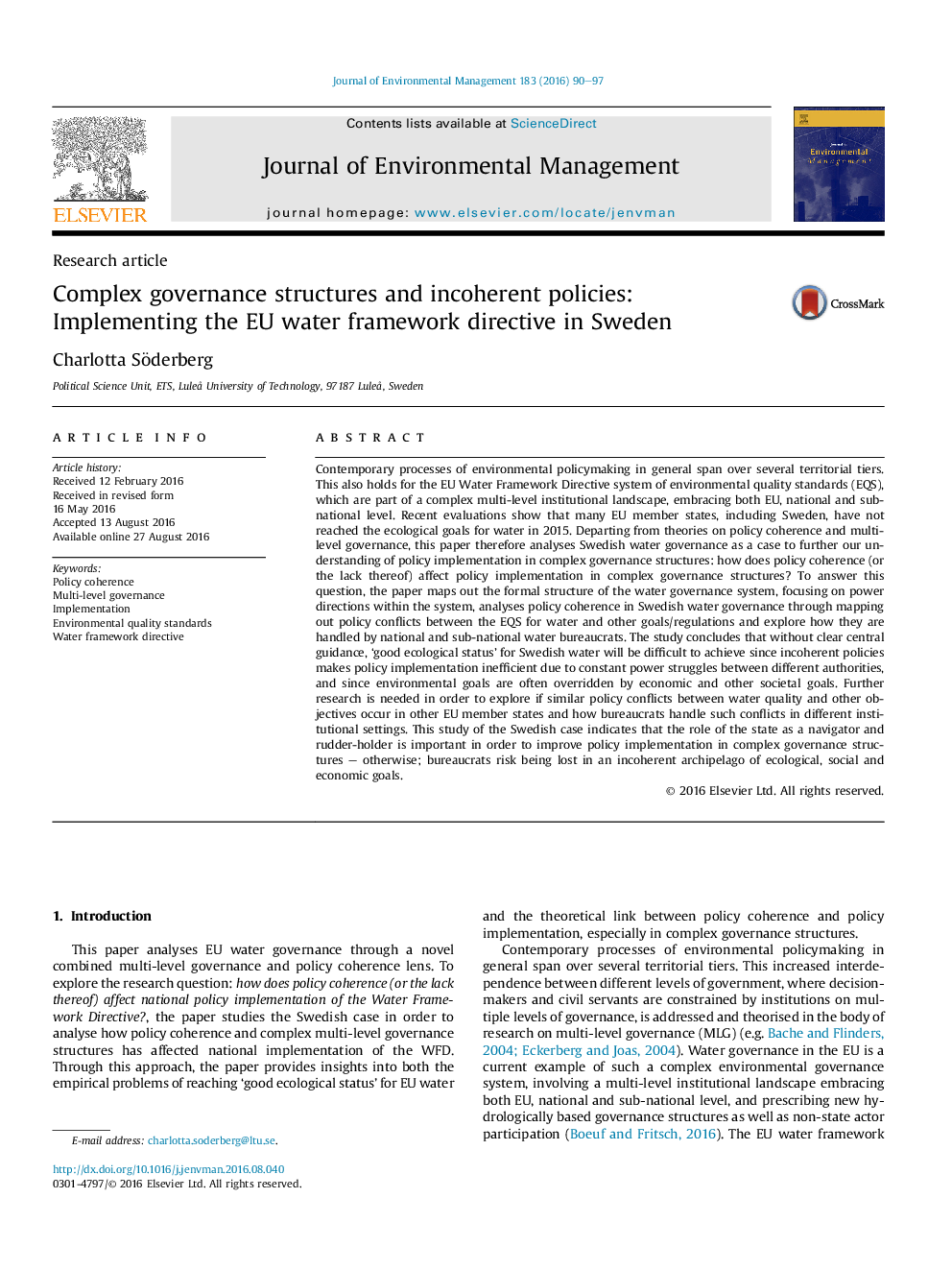| Article ID | Journal | Published Year | Pages | File Type |
|---|---|---|---|---|
| 5117292 | Journal of Environmental Management | 2016 | 8 Pages |
â¢Incoherence makes implementation inefficient in complex governance structures.â¢Guidance is needed to avoid constant power struggles between different authorities.â¢Guidance is needed for prioritising between different societal goals.â¢Environmental goals are often overridden by economic and other societal goals.â¢State guidance can improve policy implementation in complex governance structures.
Contemporary processes of environmental policymaking in general span over several territorial tiers. This also holds for the EU Water Framework Directive system of environmental quality standards (EQS), which are part of a complex multi-level institutional landscape, embracing both EU, national and sub-national level. Recent evaluations show that many EU member states, including Sweden, have not reached the ecological goals for water in 2015. Departing from theories on policy coherence and multi-level governance, this paper therefore analyses Swedish water governance as a case to further our understanding of policy implementation in complex governance structures: how does policy coherence (or the lack thereof) affect policy implementation in complex governance structures? To answer this question, the paper maps out the formal structure of the water governance system, focusing on power directions within the system, analyses policy coherence in Swedish water governance through mapping out policy conflicts between the EQS for water and other goals/regulations and explore how they are handled by national and sub-national water bureaucrats. The study concludes that without clear central guidance, 'good ecological status' for Swedish water will be difficult to achieve since incoherent policies makes policy implementation inefficient due to constant power struggles between different authorities, and since environmental goals are often overridden by economic and other societal goals. Further research is needed in order to explore if similar policy conflicts between water quality and other objectives occur in other EU member states and how bureaucrats handle such conflicts in different institutional settings. This study of the Swedish case indicates that the role of the state as a navigator and rudder-holder is important in order to improve policy implementation in complex governance structures - otherwise; bureaucrats risk being lost in an incoherent archipelago of ecological, social and economic goals.
